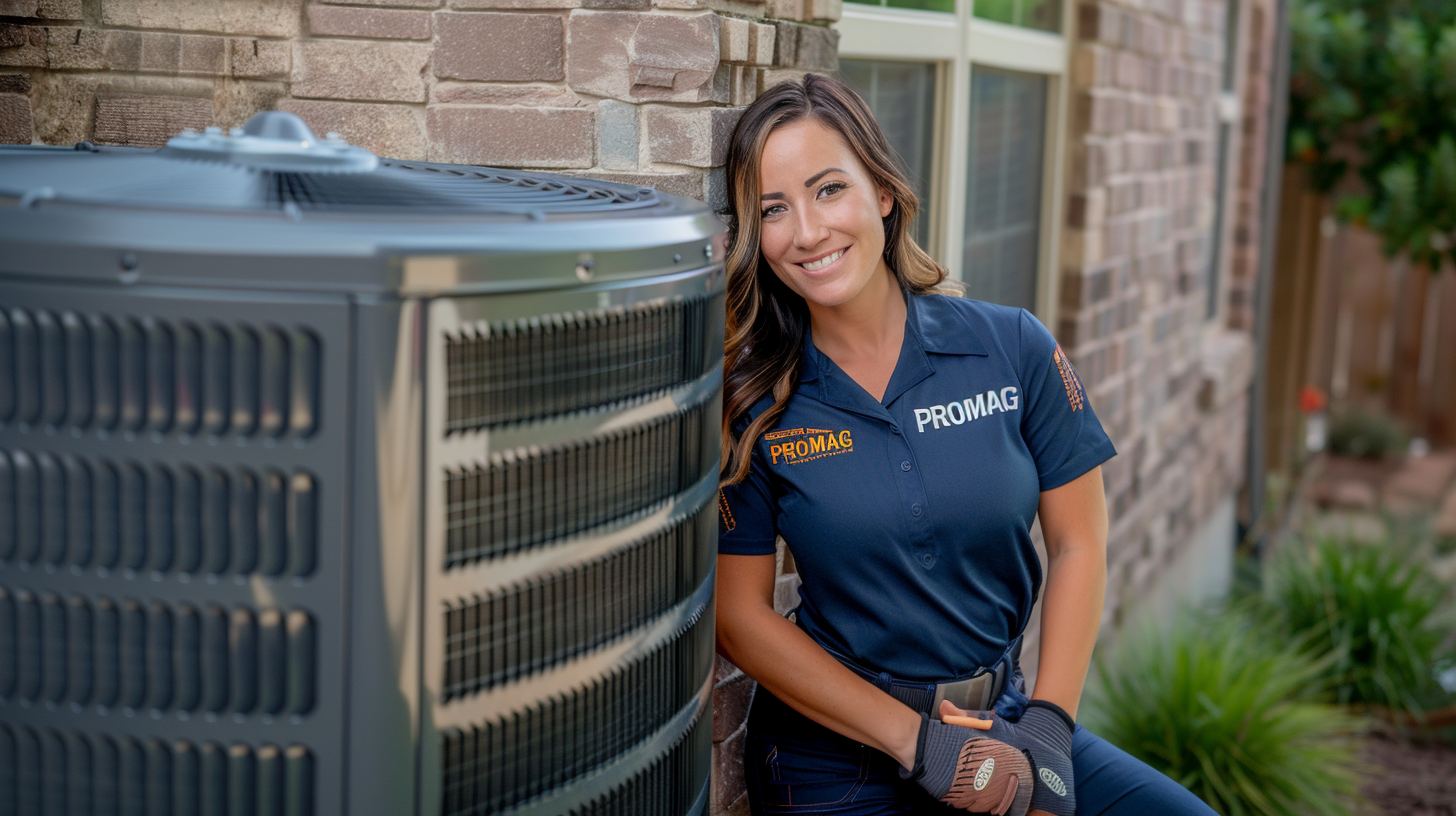Energy-Efficient Cooling And Heating Equipments to Minimize Utility Costs
As energy expenses proceed to climb, the importance of energy-efficient Heating and cooling systems ends up being increasingly obvious. These systems not just assure considerable financial savings on utility bills however also add to a more lasting future by decreasing power consumption.
Benefits of Energy-Efficient A/c Solutions
Energy-efficient Cooling and heating systems use countless benefits that prolong past simple price savings. By eating much less energy, these systems contribute to decrease greenhouse gas emissions, aiding to fight environment change and advertise sustainability.
In addition, energy-efficient HVAC systems often offer improved comfort levels. Most of these systems feature advanced innovation that enables for better temperature control and improved air top quality (DMAKS HVAC). This brings about a healthier indoor environment, which is specifically essential for people with allergies or respiratory concerns
Furthermore, purchasing energy-efficient heating and cooling systems can boost residential or commercial property value. As even more consumers prioritize power effectiveness, homes and buildings equipped with these systems may draw in greater quotes in the realty market.
Sorts Of Energy-Efficient A/c Options
How can homeowners and companies pick the most appropriate energy-efficient HVAC options for their needs? The market uses a range of energy-efficient cooling and heating systems, each created to enhance convenience while minimizing energy usage.
One option is the variable cooling agent flow (VRF) system, which successfully regulates the temperature level in multiple zones within a structure. This system adapts its cooling agent flow to match the desired temperature, bring about significant power savings.
One more prominent option is geothermal warm pumps, which make use of the planet's steady temperature level to warmth and amazing spaces. By transferring warmth to and from the ground, these systems demonstrate outstanding efficiency, particularly in modest environments.
Furthermore, ductless mini-split systems provide an energy-efficient alternative for homes doing not have ductwork. These systems enable zone-specific cooling and heating, reducing power waste in empty locations.
Last but not least, high-efficiency furnaces and air conditioning unit, with sophisticated SEER and AFUE rankings, supply trustworthy environment control while consuming much less energy than conventional designs. By reviewing these options, home owners and businesses can select a heating and cooling system tailored to their details requirements and power performance objectives.
Trick Functions to Think About

Next, examine the kind of compressor used in the system. DMAKS HVAC. Variable-speed compressors can readjust their outcome to match the home heating or cooling down demand, bring about enhanced comfort and energy cost savings contrasted to single-speed versions. Additionally, look for systems geared up with smart thermostats that use programmable setups and remote gain access to, permitting better control over power consumption
One more critical feature is the system's air purification capacity. High-efficiency filters can improve indoor air quality and visit here reduce energy intake by guaranteeing the system runs effectively. Take into consideration the kind of cooling agent made use of; modern-day systems frequently utilize eco-friendly refrigerants that have a reduced environmental effect.
Lastly, make sure that the system is suitable with zoning modern technology, which permits for tailored temperature level control in different areas of your home, enhancing convenience while decreasing energy usage.
Tips for Choosing the Right System


Following, consider energy efficiency ratings, specifically the Seasonal Energy Performance Proportion (SEER) for cooling systems and the Yearly Gas Usage Efficiency (AFUE) for heating systems. Greater scores suggest higher efficiency, which can cause significant cost savings on utility costs in time.
In addition, examine the sort of HVAC system that ideal suits your way of living and budget. Choices include main air conditioning, ductless mini-splits, and heatpump, each with its very own collection of benefits and drawbacks.
Don't overlook the significance of proper installation and sizing; an improperly sized system can bring about ineffectiveness and boosted wear. Lastly, seek advice from with a professional HVAC professional to get expert referrals customized to your home's unique requirements. This thorough strategy will certainly guarantee that you choose an energy-efficient heating and cooling system that meets your demands and budget plan effectively.
Upkeep for Optimum Performance
As soon as the best cooling and heating system remains in place, recurring maintenance comes to be Check Out Your URL key to ensuring ideal effectiveness and long life. A properly maintained system runs better, leading to lower energy consumption and reduced energy bills. Normal assessments and tune-ups must be arranged at the very least twice a year-- as soon as prior to the cooling period and as soon as before the heating season.

Homeowners should additionally be cautious regarding monitoring their a/c system's performance. Uncommon sounds, varying temperatures, or raised power expenses can show underlying issues that call for immediate interest. By attending to these issues immediately, house owners can prevent costly repairs and expand the life expectancy of their systems.
Buying a maintenance plan with a qualified specialist not just improves performance but additionally supplies tranquility of mind, knowing that the system is running at its finest. DMAKS HVAC. Routine upkeep is as a result essential for maintaining energy effectiveness and reducing overall operational costs
Final Thought
To conclude, energy-efficient a/c systems provide a sensible solution for reducing energy expenses while enhancing convenience and air high quality. By including innovative modern technologies and options such as geothermal heat pumps and ductless mini-splits, residential property proprietors can attain considerable energy savings and add to environmental sustainability. Careful consideration of system functions and recurring maintenance better makes sure optimum performance, making energy-efficient systems a sensible investment for both economic and ecological advantages.